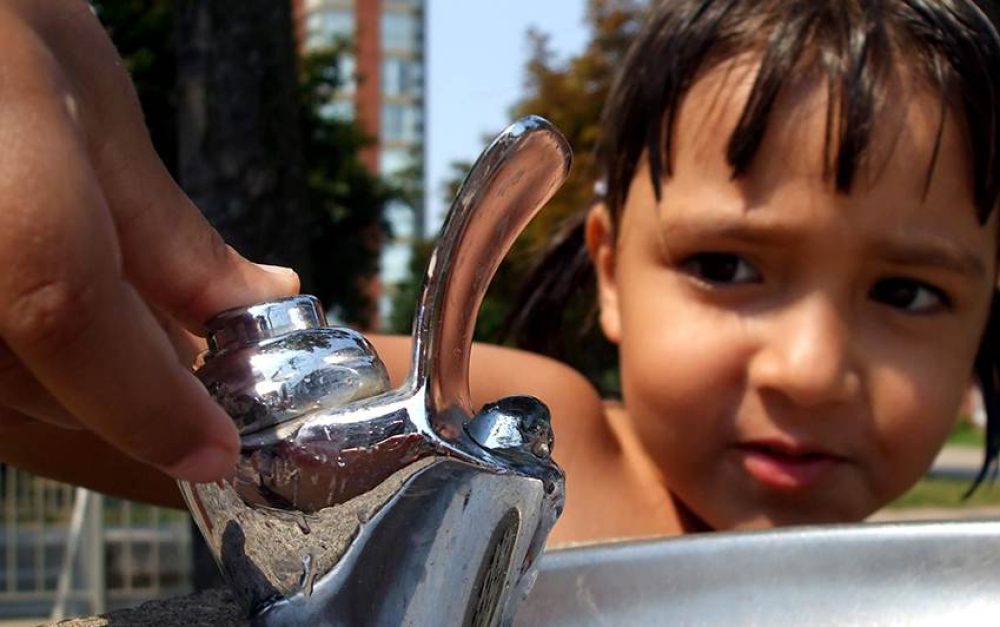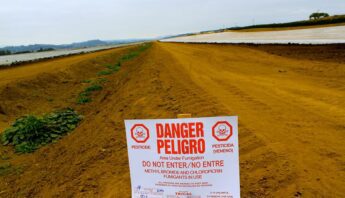For more than 50 years, Dow Chemical Company and Shell Oil knowingly included a highly toxic waste chemical in their fumigant pesticide products, rather than paying to dispose of it properly. The chemical, 1,2,3-trichloropropane (TCP), is a known carcinogen.
TCP is considered a "garbage" chemical because it is a by-product of the plastics manufacturing process — it is not intentionally produced. By including TCP in their fumigants, which are widely used in California to kill nematodes, Dow and Shell Oil contaminated drinking water in communities throughout the San Joaquin Valley. Several cities are now suing both companies for cleanup costs.
It was these municipal lawsuits that uncovered an internal memo documenting the intentional TCP dumping.
Ducking disposal costs
TCP was "reused" since Dow and Shell started manufacturing their respective fungicides, D-D and Telone, more than 50 years ago. According to testimony from chemical engineer Robert H. Schwaar, it was a regular practice in the chemical industry to avoid disposal costs by finding ways to incorporate toxic waste into new products. He explains:
The disposing of waste is not inexpensive. But if you can recover some costs by using the waste in another product, then it’s all to the good.
The "trash" memo, recently uncovered during the discovery process of the lawsuits, reveals that Dow and Shell knew TCP had no function in killing nematodes, but left the chemical in their fumigants anyway. According to the lawyer representing several Valley cities and water agencies,
TCP was a hazardous waste, not a pesticide. It did nothing for farmers, but Shell and Dow knowingly used their fumigants as a way to dispose of it.
Another example of a corporation incorporating waste into new products is the notoriously toxic fumigant methyl bromide. Originally a waste product from production of leaded gasoline and fire-resistant electronics, methyl bromide was marketed and sold as a pesticide by the Ethyl Corporation (a collaboration of Dupont, General Motors and Exxon).
Contaminated wells
Shell stopped manufacturing D-D in the 1980s, and Dow reformulated Telone in the 1990s to remove TCP and other unnecessary ingredients. But according to Schwaar, it will take many years for TCP in the Valley's groundwater to dissipate.
TCP has been detected in more than 200 Valley drinking water wells at levels much higher than the California public health goals. The chemical has been connected with several kinds of cancer including stomach, kidney, liver and pancreatic. EPA is currently working towards federal regulations around TCP, which are expected in the next four to five years.
The 1974 memo released by Dow shows that the company decided against performing tests to examine the potential health impacts of TCP and other "trash" ingredients:
It’s not that we are particularly concerned about their safety, but rather we can’t justify the costs of their toxicological studies.
Dow and Shell are being sued by several cities in the San Joaquin Valley, with the aim of forcing the companies to pay for cleaning up the contamination. Shell and Dow already settled with the city of Livingston for $13 million. Other cities are waiting in line with suits, including Clovis, Stockton, Fresno, Bakersfield, Visalia, Delano and Lamont.







